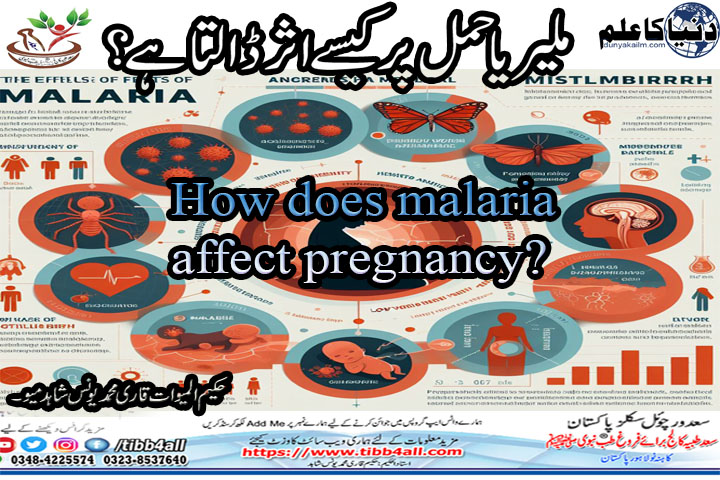- Home
- Hakeem Qari Younas حکیم قاری محمد یونس شاہد میو
- How does malaria affect pregna ...

How does malaria affect pregnancy?
By Hakeem Al Mewat Qari Muhammad Younis Shahid Mayo

hakeem al meet
Qari m younas shahid meo
tibb4all
dunyakailm
Saad Virtual Skills
@Tibb4allTv
# diagram
1. Introduction to Malaria
2. Understanding Malaria and Pregnancy
– Risks associated with malaria during pregnancy
3. How Malaria Affects Pregnancy
– Effect on mother
– Effect on fetus
4. Symptoms of malaria during pregnancy
5. Diagnosis and treatment
6. Prevention of malaria in pregnant women
– Anti-malarial drugs
– Insecticide treated nets
– Internal residual sprinkler
7. Importance of prenatal care
8. Complications of malaria in pregnancy
9. Case studies and statistics
10. Conclusion
## Malaria and Pregnancy: Understanding the Risks
**Malaria and Pregnancy: Understanding the Risks**
Malaria is one of the oldest recognized diseases in world history
Malaria is a serious infectious disease caused by parasites spread through the bites of infected mosquitoes. Although it affects millions of people worldwide every year, pregnant women are especially vulnerable to its effects. In this article, we examine the intimate connection between malaria and pregnancy, exploring how the disease can affect both the mother and her unborn child.
### Risks associated with malaria during pregnancy

Malaria poses significant risks to pregnant women and their babies. The disease can lead to serious complications such as anemia, miscarriage, stillbirth, and low birth weight. Additionally, malaria infection during pregnancy increases the risk of maternal death.
### How Malaria Affects Pregnancy
#### Effects on the mother
Malaria can cause severe illness in pregnant women due to their weakened immune systems. Symptoms such as fever, chills, headache, and body aches may be more pronounced in pregnant women, which can lead to complications such as dehydration and organ dysfunction if left untreated.
#### Effects on fetus
Malaria infection during pregnancy can have devastating consequences for the fetus. Parasites can cross the placenta and infect the unborn baby, causing fetal growth restriction, premature birth, and even fetal death. Additionally, infants born to mothers with malaria are at increased risk of neonatal mortality and long-term developmental problems.
### Symptoms of malaria during pregnancy

Symptoms of malaria in pregnant women are similar to those in non-pregnant individuals and may include high fever, sweating, nausea, vomiting and muscle aches. However, due to the physiological changes that occur during pregnancy, these symptoms may be more severe and indistinguishable from other pregnancy-related conditions.
### Diagnosis and Treatment
Diagnosing malaria in pregnant women can be difficult, as symptoms may overlap with other common pregnancy illnesses. However, health care providers can order blood tests to detect the presence of the malaria parasite. Treatment usually includes antimalarial drugs that are safe for use during pregnancy, although drug resistance is a growing concern in some areas.
### Prevention of malaria in pregnant women
Prevention of malaria in pregnant women is very important to ensure the health and well-being of both mother and child. This can be achieved through a combination of interventions, including the use of insecticide-treated nets, indoor residual spraying to kill mosquitoes, and provision of antimalarial drugs during antenatal care visits. .
#### Anti-malarial drugs

Pregnant women living in areas with high rates of malaria transmission may be prescribed antimalarial drugs as a preventive measure. These medications are safe to use during pregnancy and can significantly reduce the risk of infection.
There are best remedies for this in indigenous medicine, which are easy to use at home.
#### Insecticide treated netting
Sleeping under an insecticide-treated bed net is one of the most effective ways to avoid mosquito bites and reduce the risk of malaria transmission. Pregnant women and their families should use bed nets regularly, especially during nighttime mosquito bites.
If bitter medicines such as neem leaves are boiled in water and a little amaranth is added to it and sprinkled locally or directed to apply on the body, both are beneficial.
#### Internal residual sprinkler
Indoor residual spraying involves the application of insecticides to the interior walls of homes and other buildings to kill mosquitoes that come into contact with treated surfaces. This method can help reduce the mosquito population and prevent the transmission of malaria in endemic areas.
### Importance of prenatal care
Regular antenatal care is essential for pregnant women, especially those living in malaria-endemic areas. Health care providers can monitor for symptoms of malaria infection and provide appropriate treatment and precautions to protect both the mother and her unborn child.
Such drugs strengthen the muscles, i.e. neuromuscular drugs have the best results
### Complications of Malaria in Pregnancy
Untreated malaria in pregnancy can lead to a variety of complications, including severe anemia, placental abruption, and premature labor. These complications can have long-lasting effects on the health of mother and baby, highlighting the importance of early detection and prompt treatment.
### Case studies and statistics
Several studies have documented the impact of malaria on pregnancy outcomes, with findings indicating a higher rate of adverse outcomes among pregnant women living in malaria-endemic areas. Statistics show that malaria contributes to a significant burden of disease among pregnant women in sub-Saharan Africa and other regions with high rates of malaria transmission.
## Result
Malaria is a significant threat to pregnant women and their unborn babies, with potentially devastating consequences for maternal and child health. Understanding the risks associated with malaria during pregnancy and implementing effective prevention and treatment strategies are critical to reducing the burden of the disease on vulnerable populations.
—
**Frequently Asked Questions**
1. **Can pregnant women take anti-malarial drugs?**
– Yes, some antimalarial drugs are considered safe for use during pregnancy and are recommended for pregnant women living in areas with high rates of malaria transmission.
2. **How can pregnant women avoid malaria?**
– Pregnant women can prevent malaria by using insecticide-treated bed nets, avoiding mosquito bites, and taking antimalarial medications prescribed by their health care providers. .
3. **What are the complications of malaria in pregnancy?**
– Complications of malaria in pregnancy include anemia, miscarriage, stillbirth, low birth weight, and maternal death.
4. **Is malaria testing routinely done during antenatal care visits?**
– In malaria-endemic areas, health care providers can include malaria testing as part of routine prenatal care to detect and treat infections early.
5. **Are there any long-term effects of malaria on babies born to infected mothers?**
– Babies born to mothers with malaria can have long-term developmental problems and are at risk of neonatal mortality.













